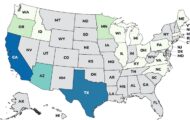I’m often asked to speak at programs about food safety. A frequently asked audience question involves what foods I avoid eating (sprouts, raw oysters, undercooked meats, etc.). It occurs to me, however, that from a food safety standpoint, that’s really not the right question. After all, there are many foods not on my or anyone else’s “unsafe” list that are regularly implicated in foodborne illness outbreaks.
 There are foods that are inherently more dangerous than other foods and justifiably deserve greater scrutiny and caution.
There are foods that are inherently more dangerous than other foods and justifiably deserve greater scrutiny and caution.
However, less inherently dangerous food products can cause the same injuries and deaths if not produced in compliance with standards and regulations applicable to the industry of which they are a part. Put another way, hamburger produced in insanitary conditions is every bit as dangerous as eating a raw oyster harvested in a month with the letter “r.”
Unfortunately, most consumers have no idea and little way to find out whether the hamburger they order at a restaurant or the ground beef they purchase at a supermarket was processed by a company regularly implicated in foodborne illness outbreaks.
Wouldn’t you want to know if the producer of the food product you purchase is a frequent food safety offender? Wouldn’t you avoid the products of a meat packer that poisoned or killed scores of people in previous outbreaks?
It’s well known in the medical profession that a small number of physicians are implicated in a disproportionate share of malpractice claims. Over the protest of medical associations, some states are starting to publically identify those physicians based on the notion that consumers have a right to know (and avoid) a physician more prone to errors than his or her peers.
It is equally well known that a small number of meat processors are responsible for a disproportionate number of foodborne illness cases. One of the reasons that occurs is because consumers have no way of knowing the source of the food they purchase.
Many restaurants take pride (and make a higher profit) in identifying the source of high end, locally produced food products. In that case, knowledge sells: customers are presumably willing to pay more for products which are perceived as higher quality, better for the environment or healthier. Why shouldn’t the same emphasis on consumer knowledge apply to the source of all food products or at least those food products, like ground beef, regularly implicated in foodborne illness outbreaks? After all, knowledge is power.
For example, you go to your neighborhood chain restaurant and order a burger. The processor of the ground beef is listed on the menu (just as it is at the high end restaurant serving locally sourced meat products). A few clicks on your smart phone shows that the processor had been implicated in five prior outbreaks. You wisely order something else because you had the knowledge which gave you a choice.
We’re allowed to make choices to pay more for premium products. Why shouldn’t we have the same information in order to avoid substandard products?





Interesting article. It’s interesting that we are expected to pay more for food that is simply guaranteed to be safer than other food. Shouldn’t basic food safety be a requirement, rather than something we pay extra for?